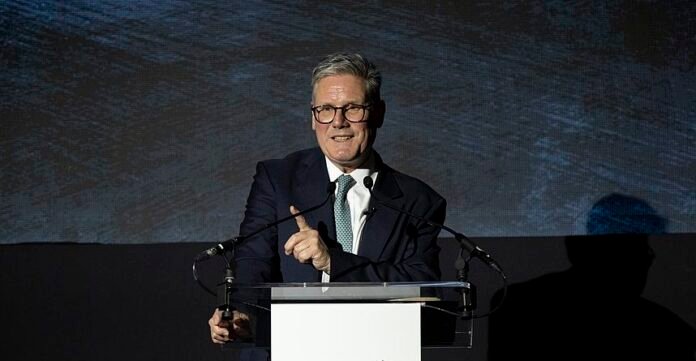PM announces retreat on means-tested fuel payments after uproar from MPs, charities and voters
Sir Keir Starmer has reversed the controversial decision to cut the winter fuel payment after weeks of mounting pressure, pledging to ease restrictions that left over 10 million pensioners without the annual support of up to £300.
The Prime Minister made the shock announcement during Prime Minister’s Questions, confirming that ministers would change the income threshold to allow “more pensioners” to qualify again. The policy U-turn follows fierce backlash from within Labour ranks, pensioner charities, and local councillors who blamed the means-testing for voter losses in last month’s local elections.
Starmer said the adjustment would be made in the autumn Budget, but refused to confirm how many pensioners would regain eligibility or whether the changes would be in place for the coming winter. “We will only make decisions we can afford,” he told the Commons.
The winter fuel payment – £200 for pensioners under 80 and £300 for those over – was once a universal benefit paid automatically each November or December. But last year, Labour restricted the payments to those on pension credit and certain other income-related benefits to save an estimated £1.4bn. The change hit 10.3 million pensioners and sparked an immediate outcry.
Former Prime Minister Gordon Brown, who introduced the universal payment as Chancellor in 1997, welcomed the move to reconsider, saying: “No pensioner should be forced into poverty if they’ve served the country all their lives.”
Tory leader Kemi Badenoch initially ignored the announcement in her opening questions but later welcomed what she called an “inevitable U-turn”. However, she criticised the delay, saying the Budget would be “too late” to provide relief before this winter. She declined to say where the new threshold should lie but stressed that “millionaires” should not benefit.
Liberal Democrat leader Sir Ed Davey mocked the timing, calling it “the longest U-turn in government history” and urged Starmer to reverse the cut “in full.”
Designing a new eligibility test will prove politically and logistically difficult. Pension credit thresholds currently stand at £11,800 a year for individuals and £18,023 for couples. Think tank the Resolution Foundation warned against introducing an entirely new means test, suggesting instead a modest expansion of pension credit eligibility, although they noted this could cost up to £2.5bn due to wider benefit entitlements.
Some experts floated alternative approaches, such as linking eligibility to council tax bands or extending it to recipients of housing or disability benefits. Age UK cautiously welcomed Starmer’s announcement but said any future system must protect pensioners on “low and modest incomes.”
Downing Street declined to guarantee that changes would apply this winter. The PM’s spokesman said, “We want to deliver this as quickly as possible,” but insisted decisions must be “fully costed.”
Winter fuel payments were introduced to help pensioners cope with heating bills during colder months. While the state pension remains protected by the “triple lock” – rising this year by 4.1% – critics argue it does not make up for soaring energy costs.
The issue is devolved across the UK. Northern Ireland followed Labour’s restrictions last winter but added a £100 top-up. In Scotland, the SNP plans to replace the current system with a universal £100 winter payment for those no longer eligible.
As ministers rush to revise the policy, Starmer’s U-turn on the winter fuel payment highlights the impact of public backlash and the political risks of mishandling pensioner support.
THE GUARDIAN
At PMQs, Keir Starmer performed a major U-turn by reversing cuts to the winter fuel allowance — but Conservative leader Kemi Badenoch barely noticed. The reversal, prompted by Labour backbench pressure, was awkwardly framed by Starmer as a planned change, though few were convinced. It handed Badenoch a clear chance to score political points. Instead, she ignored it, sticking to a scripted attack on Labour’s economic record. Tory MPs were visibly frustrated, while Labour MPs were delighted. John Crace ridiculed Badenoch’s failure, likening her to a footballer missing an open goal. Even when prompted by Chris Philp, she reacted too late, asking a weak question that allowed Starmer to brush it off. Badenoch also bizarrely fixated on Angela Rayner’s uneventuated tax proposals, confusing speculation with policy. Starmer, unchallenged, cruised through what should have been a grilling. Crace summed it up with trademark sarcasm: Badenoch is “KemiKaze” — consistently catastrophic, yet somehow convinced she’s nailed it.
SKY NEWS
Former Prime Minister Gordon Brown has supported Keir Starmer’s U-turn on winter fuel payments, calling for fairness to pensioners but suggesting the wealthiest should be excluded. Speaking to Sky News, Brown, who introduced the payments as a universal benefit in 1997, said there’s now a “strong case” for removing eligibility from those on the top income tax rate. While he welcomed Starmer’s move to widen access amid economic improvement, he acknowledged the policy may no longer need to be entirely universal. Brown stressed that pensioners and working people should not be pushed into poverty, advocating a “fairness guarantee.” During PMQs, Starmer said improving economic conditions meant more pensioners could now be eligible, hinting the payment threshold—currently £11,500—may rise rather than a full reversal of means-testing. Brown cited Labour’s 2015 manifesto, which proposed excluding the highest earners, and urged a balanced approach to ensure support reaches those in genuine need. Starmer’s shift came after internal pressure and backlash to the original policy.
